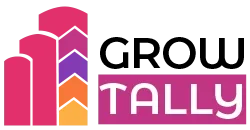When it comes to social media, nothing pays like consistency in showing up. However, constantly brainstorming what to post, when, and in what format can quickly become overwhelming. That’s where a content calendar comes to the rescue!
A content calendar is your roadmap to creating content that resonates with your audience and actively supports your business goals. While many content calendars exist, a strategic one takes things further – it aligns your content with the customer journey, ensuring you’re attracting potential customers, nurturing existing ones, and ultimately driving conversions.
Let’s dive into how you can create your powerhouse content calendar!
Mapping Content to the Customer Journey

Before you start plugging in random ideas, understand that not all content serves the same purpose. Here’s a breakdown of the basic funnel stages and the best content types when addressing each.
- Awareness (Attract): The goal is to grab attention and introduce yourself to potential customers. This is where eye-catching visuals or captivating videos shine best.
- Consideration (Engage): Your audience is interested, now it’s time to build trust. Think customer testimonials, interactive content like polls or quizzes, or behind-the-scenes glimpses via stories.
- Decision (Convert): Help them seal the deal! Product demos, compelling case studies, limited-time offers, or a FAQ series addressing objections can push leads to become customers.
The Power of Variety in Your Content Calendar
A diverse mix of content formats is essential for keeping your audience engaged and appealing to different learning styles. As much as possible, your content must include a mix of the following;
- Video: From short-form reels and tutorials to longer-form webinars, video is king for showcasing your expertise and building your personality.
- Carousels: Ideal for educational content or step-by-step guides, allowing users to digest information at their own pace.
- Static Images: Inspirational quotes or visually appealing product shots have their place, especially when paired with a strong caption.
- Stories: Perfect for behind-the-scenes snippets, polls, limited-time promotions, and creating a sense of urgency and community.
The Power of a Good Caption
No matter how visually stunning your content is, the caption is where you hook attention, add context, and drive engagement. (You can learn how to write great Instagram captions here). Think of it as your mini-sales pitch! A good caption can direct followers to your bio link, tag relevant accounts, and encourage action (comments, saves, shares).
Balancing Between Evergreen vs. Trending Content in your Content Calendar

While jumping on trends may be the fastest way to go viral and attract immediate attention to your page, creating content that will continue to resonate with your audience is the key to sustained growth. However, a strategic content calendar will make room for evergreen and trending content. The key is to find the right balance. Here’s how that may look;
- Evergreen Content: This is the foundation of your content calendar. It’s valuable long-term, like tutorials, FAQs, or content addressing timeless pain points for your audience. The advantage? It can consistently attract new leads over time.
- Trending Content: By incorporating relevant trends, you show you’re on top of what’s current and relatable. Be strategic! Jumping on just any trend isn’t wise; it has to fit your brand and niche. Tools like Google Trends and social media listening can help you identify what’s buzzing.
- The Ideal Ratio: Use the Pareto principle. Focus on a solid foundation of evergreen content (roughly 80%), but leave some wiggle room (20%) to sprinkle in timely, trending topics.
Building Your Content Calendar (Practical Steps)
Want to get get started? Here’s what to do
- Choose Your Tool: A simple spreadsheet can work wonders if you’re just starting. Some platforms like HubSpot have template calendars that you can adapt to your needs. As your needs grow, explore dedicated content calendar platforms like Later, Trello, or Asana.
- Start Simple: Aim for 2-3 posts per week initially, especially if you’re handling it alone. Focus on consistency over quantity, especially in the beginning. However, if you’re outsourcing to a social media agency, they may be able to manage a post every day and even scale that up
- Theme Your Days: Dedicating certain days to specific types of content (ex: “Motivation Monday,” “Tutorial Tuesday”) helps streamline the brainstorming process.
- Batch Content Creation: Write several captions at once and film multiple short videos in advance… this saves time and mental energy.
Conclusion
Your content calendar is a dynamic tool. Review it regularly, analyze what’s performing well, and don’t be afraid to make adjustments. By creating a strategic content calendar that aligns with your customer journey and uses diverse content formats, you’ll save time, boost engagement, and ultimately achieve your business goals.
Ready to level up your social media content strategy? Leave a comment below and we will help you get started.




